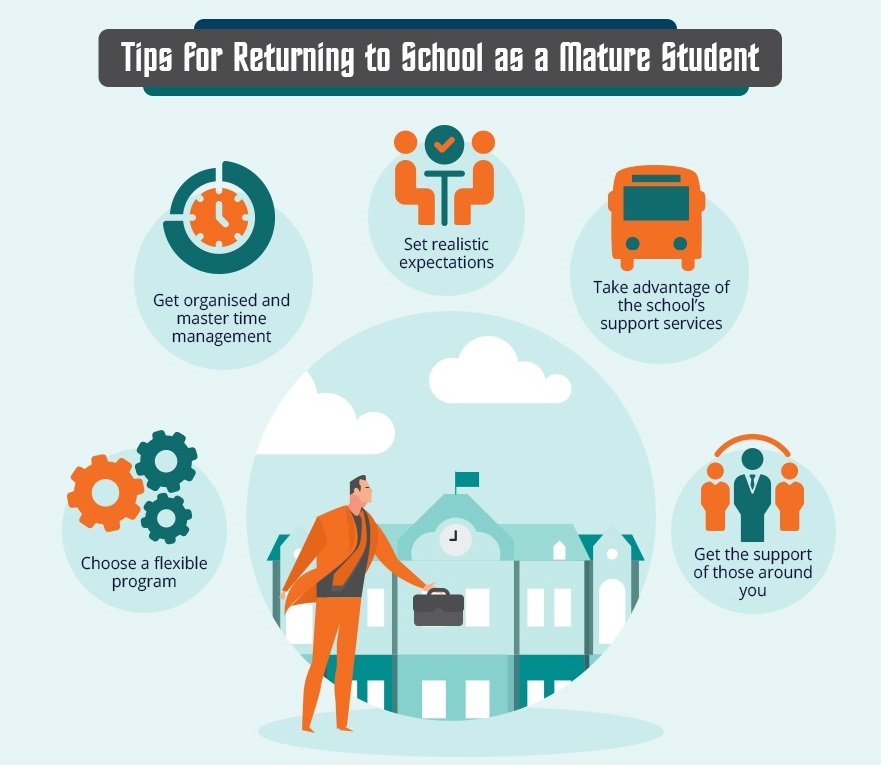Five tips for returning to school as a mature age student
Going back to school after years out of the classroom can be a nerve-wracking experience. Not only do you have to make the adjustment to being a student again, but the majority of your peers will be considerably younger than you are. In fact, many will be teenagers embarking on their first year of tertiary study! There’s no need to stress though, because here are five simple ways you can make things easier for yourself if you’re heading down the mature age student path.

Source: Trainwest
Choose a flexible program
It’s unlikely somebody who has been working for years is going to be keen on adapting a university student lifestyle typical of someone who has just finished high school. Unless you’re being supported financially, you’ll still need to work and thus, will need a flexible schedule that allows you to balance employment and study. Do some research prior to choosing your subjects and ideally, try to have as many classes as possible on the same days so you have a few days up your sleeve for working.
Get organised and master time management
Managing your time efficiently will never be more important. Between classes, assignments, work, family and a social life, most mature age students have a pretty full plate, especially those with children. Get yourself a diary before the start of each semester and document everything – assignments, exams, birthdays, bills, events – virtually anything with a deadline. This will help you keep on top of things and avoid anything slipping through the cracks.
Set realistic expectations
For many mature age students, it’s been years, sometimes decades, outside of the classroom. So temper your expectations – you might have your sights set on High Distinctions (HDs) right from the start, but it could take some time to adjust before you start achieving the results you’re looking for.
Take advantage of the school’s support services
Support services are in place for a reason. If you’re struggling with any element of returning to study, make sure you access these mechanisms, which can range from counselling and financial advice to academic assistance.
Get the support of those around you
Leaning on family, friends and even colleagues is crucial to successfully returning to study. This might include asking for help at work if you feel like you’re falling behind, or seeking advice about how to approach a task at university.

